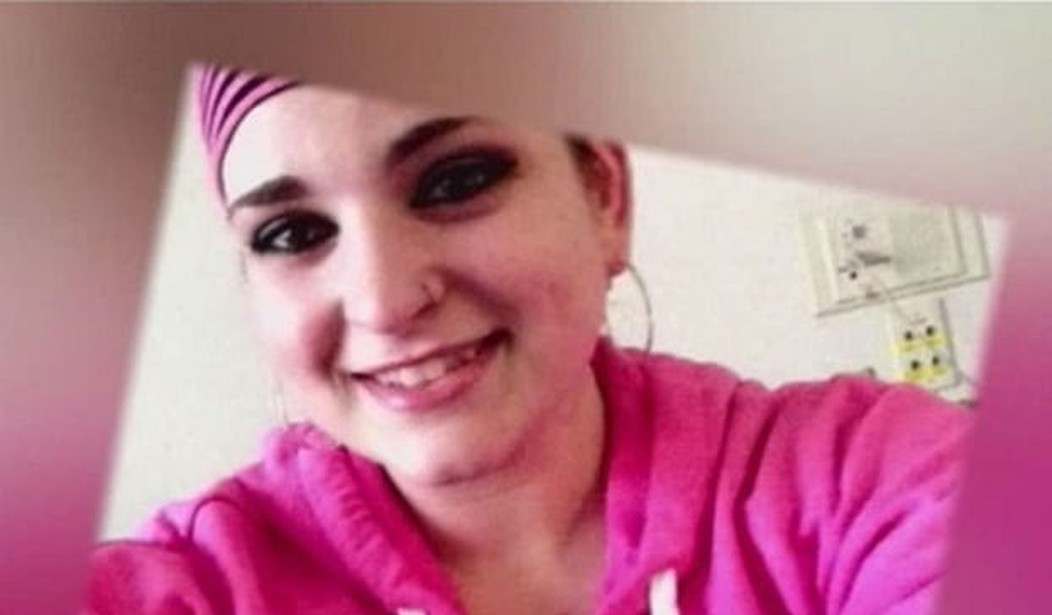Nearly a year ago we covered the case of Justina Pelletier.
She was a Massachusetts teenager who had the misfortune to have one set of doctors, those employed by the state, disagree with another set, employed by her parents.
The Department of Children and Families took emergency custody of the teen on Valentine’s Day 2013 after a diagnostic dispute arose between some doctors at Tufts Medical Center and Boston Children’s Hospital over the causes of her medical problems, including difficulty eating and walking.
Tufts doctors had been treating Pelletier for mitochondrial disease, a group of rare genetic disorders affecting cellular energy production, but physicians at Children’s concluded that her symptoms were largely psychiatric in origin. Her parents rejected the new diagnosis, and when they tried to move the girl back to Tufts, the Children’s team notified the state that it suspected the parents of medical child abuse.
Pelletier remained at Children’s for almost a year, most of the time in a locked psychiatric ward. Johnston wrote that the girl was ready to leave the hospital in June 2013 but could not be discharged because Massachusetts child-protection officials’ efforts to find a suitable placement “were significantly hampered by the parents.”
Eventually, the same bizarre and erratic judge that had removed the parental rights of Justina’s parents and made her the permanent ward of an ongoing criminal enterprise reversed himself and sent Justina home.
In a two-page order issued Tuesday, Judge Joseph Johnston dismissed the child-protection case against Justina’s parents, Linda and Lou Pelletier, arguing that they and others had shown “credible evidence that circumstances have changed” since his decision to place Justina in the custody of the Massachusetts Department of Children and Families. He also wrote that in the month since Justina was moved to a residential facility in Thompson, Conn., her parents “have been cooperative and engaged in services,” including individual therapy for Justina and family therapy.
It was a remarkable change in tone from the judge’s ruling just three months earlier, when he determined the parents were unfit and awarded permanent custody to the state. At that time, he blasted the Pelletiers for behavior he contended was erratic and had doomed numerous attempts at compromise.
Now the Connecticut Department of Children and Families is trying its hand and being the universal parent.
For about a month, 17-year-old Cassandra C. has found herself isolated in a Connecticut hospital room under 24/7 observation.
A week into her stay, she said, she was strapped to a bed by her wrists and ankles and sedated. When she awoke, she found a port surgically placed in her chest.
“She hasn’t been convicted of a crime, but it’s kind of like she’s in jail,” said Joshua Michtom, an assistant public defender and Cassandra’s lawyer. “It’s an especially lousy way to go through chemo.”
The Connecticut Supreme Court ruled Thursday that Cassandra’s rights are not being violated by the state forcing her to undergo chemotherapy that she does not want. Her mother, Jackie Fortin, supported her daughter’s choice.
Cassandra, who is identified in court documents only by her first name and last initial, was diagnosed with high-risk Hodgkin’s disease in September and her mother has said she believes the chemotherapy could do more harm than the cancer. She and Fortin have said they want to try other therapies.
This is a tough decision for Cassandra and her mother. It literally involves life and death and, once the decision is made every day that goes by reduces the ability of Cassandra to reconsider. This, however, is a remarkably easy decision for Connecticut. This is not the state’s business. In the same state a woman younger than Cassandra can decide to kill a baby without any state agency interfering. There is no logical reason to assume that the decision to kill an infant — one which brings some immediate benefit to the mother — requires an assumption of maturity and the decision to forego treatment — one which inarguably brings little benefit to the patient — requires an assumption that the person isn’t mature enough to make the decision.
This demonstrates secular liberalism at its core. You are presumed able to make whatever decision you want (sex change, drug use, abortion, homosexual relationships, pedophilia, physician assisted suicide, [your favorite deviant behavior here]) so long as your decision is approved of. If you prefer something that the secular liberal doesn’t approve of you are presumed nuts and you are subjected to state control. This is how serfs and chattel are treated, this is not how a state treats its citizens.















Join the conversation as a VIP Member